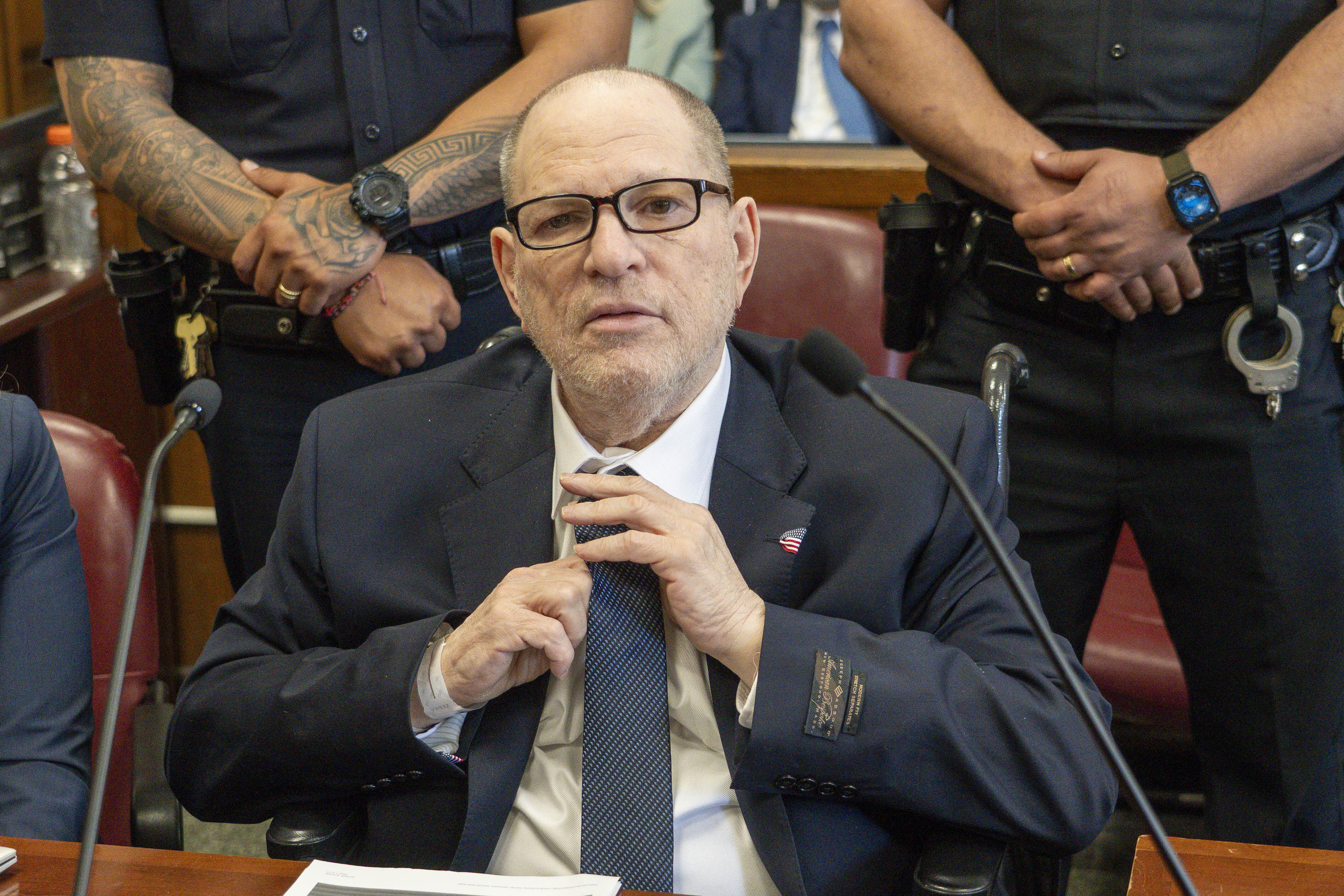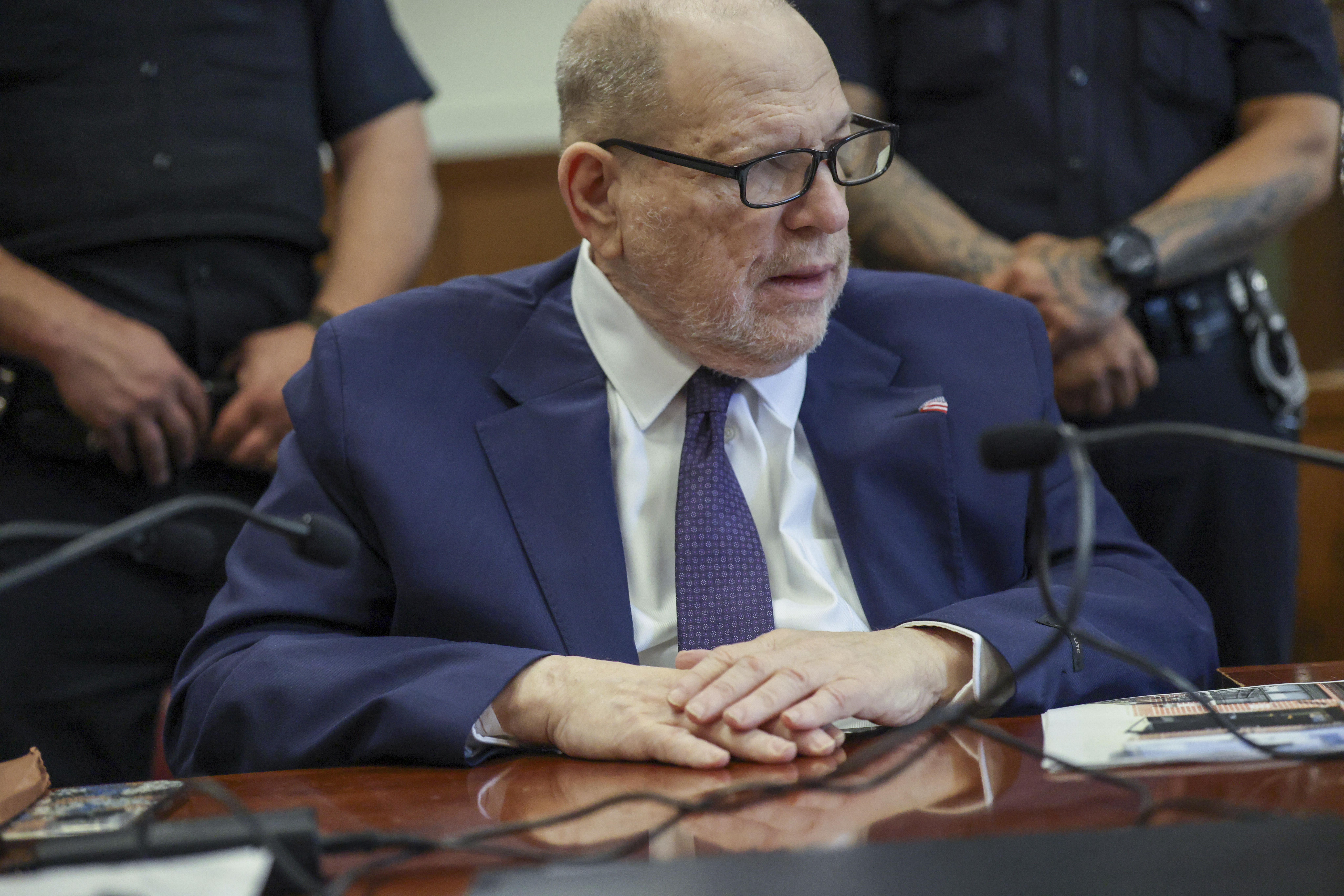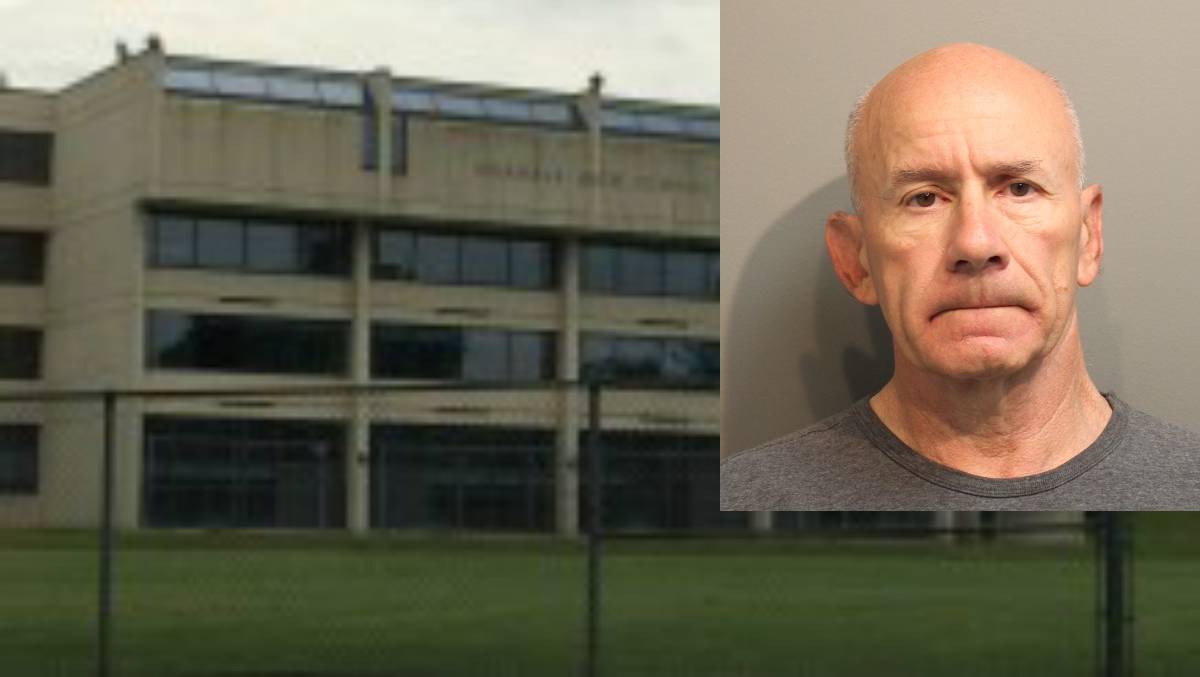Weinstein Retrial: Shocking New Allegations Emerge!
Harvey Weinstein Retrial: New Allegations Surface, Will Justice Prevail?
Introduction: A Second Chance for Justice?
The Harvey Weinstein saga continues. After a 2020 conviction was overturned, a new trial has begun, offering another opportunity to examine allegations of rape and sexual assault against the once-powerful Hollywood producer. But this isn't just a rerun; it's a revamped production with a new face adding to the already heavy cast of accusers: former teen model Kaja Sokola. Are we about to witness a different ending this time? Let's dive in.
Kaja Sokola Joins the Ranks: A Fresh Testimony
For the first time, prosecutors have publicly identified Kaja Sokola and laid bare her account of alleged encounters with Weinstein in the early 2000s. This is a significant development, injecting fresh energy and perspective into the retrial.
The Civil Lawsuit and Criminal Charges
Sokola’s accusations are multifaceted. While the criminal charge specifically relates to an alleged forced oral sex incident in 2006, her civil lawsuit includes a separate accusation of groping in 2002, when she was just 16 years old. These are serious claims, and the jury will need to carefully consider all the evidence presented.
A Pattern Emerges: Power, Promises, and Potential Abuse
Like other accusers in the case, Sokola’s story paints a complex picture. She alleges sexual assault, yet maintained contact with Weinstein, a powerful figure who held the promise of launching her acting career. It's a delicate dance between ambition and fear, one that many young hopefuls in Hollywood have likely experienced.
The #MeToo Movement and its Impact
Weinstein's case became a lightning rod for the #MeToo movement, a global reckoning against sexual harassment and assault. But, how has the #MeToo movement influenced the retrial and the overall perception of Weinstein's actions?
Increased Awareness and Scrutiny
The #MeToo movement has undoubtedly amplified awareness of sexual misconduct. This means that the jurors will likely approach the case with a heightened understanding of the dynamics of power and coercion. Are we more willing to believe accusers now?
Challenges in Proving Consent
One of the central issues in many sexual assault cases is proving a lack of consent. The #MeToo movement has sparked important conversations about what constitutes true consent, but how will this translate in the courtroom?
Defense Strategy: Attacking Credibility
We can expect the defense to attempt to discredit the accusers, raising questions about their motives, inconsistencies in their stories, and the timing of their allegations. Is this a fair strategy?
Prior Consensual Relationships
One common tactic is to suggest that any prior consensual interactions undermine claims of non-consent in later encounters. However, just because someone has consented to intimacy in the past doesn't mean they cannot withdraw consent at any time. The legal nuances are crucial.
Delayed Reporting
The defense often focuses on the fact that accusers waited years to come forward. This can be a challenging point for jurors to grapple with, as there are many valid reasons why someone might delay reporting a sexual assault, including fear of retaliation, shame, and trauma.
The Burden of Proof: Reasonable Doubt
In a criminal trial, the prosecution must prove guilt beyond a reasonable doubt. This is a high bar to clear, and the defense only needs to raise enough doubt in the minds of the jurors to secure an acquittal. How does this impact the dynamics of the retrial?
Circumstantial Evidence and Witness Testimony
Often, sexual assault cases rely heavily on circumstantial evidence and witness testimony. Direct evidence, such as DNA or video footage, is rare. This means that the jury's assessment of the credibility of the witnesses is paramount.
The Power of Persuasion: The Role of Attorneys
Ultimately, the outcome of the trial will depend on the skill and persuasiveness of the attorneys on both sides. They will present evidence, cross-examine witnesses, and make compelling arguments to the jury. It's a battle of narratives, a struggle for the jury's belief.
Media Coverage and Public Opinion
The Weinstein case has been intensely scrutinized by the media and the public. How does this influence the fairness of the trial?
Potential for Bias
Extensive media coverage can create a biased environment, making it difficult for jurors to remain impartial. It's crucial for the judge to instruct the jurors to disregard any information they may have encountered outside of the courtroom.
The Court of Public Opinion
Even if Weinstein is acquitted, he will likely remain condemned in the court of public opinion. The damage to his reputation is already done, and it's unlikely he will ever regain his former standing.
The Bigger Picture: Systemic Issues
The Weinstein case is not just about one man; it's a reflection of systemic issues within Hollywood and other industries. How can we prevent such abuses of power in the future?
Power Imbalances and Exploitation
The entertainment industry, in particular, is characterized by significant power imbalances. Young, aspiring actors are often vulnerable to exploitation by powerful producers and executives. We must foster a culture of respect and accountability.
The Need for Cultural Change
Ultimately, preventing sexual harassment and assault requires a fundamental cultural shift. We need to challenge societal norms that condone or minimize such behavior. Education and awareness are key. It's a marathon, not a sprint.
The Potential Outcomes: What's at Stake?
What are the potential outcomes of the retrial, and what impact will they have?
Conviction
If Weinstein is convicted, it would send a powerful message that even the most powerful individuals are not above the law. It would also provide a sense of closure for the victims and their families.
Acquittal
An acquittal would be a devastating blow for the victims and the #MeToo movement. It could embolden other abusers and discourage victims from coming forward. It would be a setback, but not the end.
A Hung Jury
A hung jury would mean that the jury is unable to reach a unanimous verdict. In this case, the prosecution would have to decide whether to retry the case again. This would prolong the legal battle and further traumatize the victims.
Conclusion: A Defining Moment?
The Harvey Weinstein retrial is more than just a legal proceeding; it's a reflection of our society's evolving understanding of sexual assault, power dynamics, and justice. The addition of Kaja Sokola’s allegations adds another layer of complexity and underscores the profound impact Weinstein's alleged actions had on so many lives. Whether justice will prevail remains to be seen, but this trial will undoubtedly leave a lasting mark on our culture.
Frequently Asked Questions
Here are some frequently asked questions about the Harvey Weinstein retrial:
- Why was Harvey Weinstein's original conviction overturned?
The original conviction was overturned by a New York appeals court due to errors in the trial judge's rulings, including allowing testimony about alleged acts that were not part of the charges and improperly questioning a juror. - What is the significance of Kaja Sokola's testimony?
Kaja Sokola's testimony provides a new and potentially compelling narrative of alleged sexual misconduct by Harvey Weinstein, adding weight to the existing accusations and strengthening the prosecution's case. - What is the "beyond a reasonable doubt" standard in criminal trials?
"Beyond a reasonable doubt" means the prosecution must present enough evidence to convince the jury that there is no other logical explanation for the facts except that the defendant committed the crime. It's the highest standard of proof in the legal system. - How does the #MeToo movement impact the Weinstein retrial?
The #MeToo movement has increased awareness and scrutiny of sexual assault cases, potentially influencing jurors' perceptions and understanding of power dynamics and consent. - What are the possible outcomes of the retrial, and what are their implications?
The possible outcomes include a conviction, an acquittal, or a hung jury. A conviction would validate the victims' experiences and send a strong message about accountability. An acquittal would be a setback for the #MeToo movement. A hung jury would leave the case unresolved and prolong the legal process.


